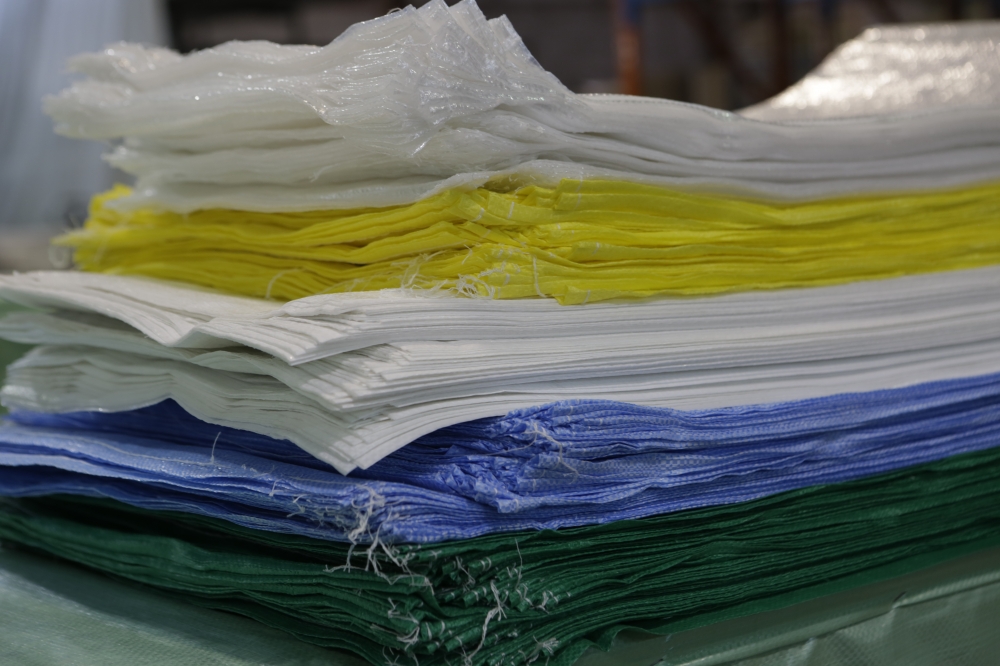Woven bags have become a popular and eco-friendly alternative to traditional plastic bags due to their durability, versatility, and sustainability. Whether you’re using them for shopping, storage, or carrying personal items, woven bags offer a practical solution for various needs. These bags are not only functional but also stylish, with different designs and materials suited to diverse uses. In this blog post, we’ll explore the different types of woven bags, their unique features, and the wide range of applications they serve.
What Are Woven Bags?
Woven bags are bags made by interlacing fibers to create a durable, flexible, and reusable product. They are typically made from a variety of materials, including plastic, jute, cotton, and polypropylene, depending on the intended use and desired durability. The weaving process strengthens the fabric, making it resistant to tearing and ensuring that the bags can handle heavier loads compared to regular fabric bags.
Types of Woven Bags
Woven bags come in several types, each designed for specific purposes. Below, we explore some of the most common types of woven bags and how they are used.
1. Jute Woven Bags
Jute bags are made from the jute plant, a natural fiber that is biodegradable and highly durable. These bags are an excellent eco-friendly option, as jute is a renewable resource that decomposes naturally. Jute woven bags are widely used in both industrial and everyday settings.
Uses of Jute Woven Bags:
- Shopping Bags: Jute bags are often used as shopping bags due to their strength and sturdiness. Many grocery stores and retail outlets have switched to jute bags as part of their efforts to reduce plastic waste.
- Promotional Products: Custom-printed jute bags are popular as promotional items. Companies often give them away as part of marketing campaigns, branding them with their logos or messages.
- Fashion Accessories: Jute bags are also used in the fashion industry for creating trendy handbags, totes, and beach bags.
The versatility of jute bags makes them suitable for a variety of occasions, from casual use to special events and marketing purposes.
2. Polypropylene Woven Bags
Polypropylene woven bags, often known as PP woven bags, are made from a type of plastic polymer. These bags are strong, lightweight, and resistant to wear and tear, making them a popular choice for both commercial and industrial applications.

Uses of Polypropylene Woven Bags:
- Packaging: PP woven bags are commonly used for packaging bulk goods such as rice, flour, sugar, and animal feed. Their strength makes them ideal for holding heavy loads without tearing.
- Reusable Grocery Bags: Many supermarkets use PP woven bags for reusable shopping bags. They are designed to withstand frequent use and are often more affordable than other fabric options.
- Agricultural Use: These bags are also used in agriculture for carrying seeds, fertilizers, and harvested crops due to their durability and ability to withstand rough handling.
The practicality of polypropylene woven bags, combined with their affordability, has made them indispensable in industries ranging from agriculture to retail.
3. Cotton Woven Bags
Cotton woven bags are made from natural cotton fibers and are soft, breathable, and environmentally friendly. They are biodegradable, making them a great alternative to plastic bags in an eco-conscious world.
Uses of Cotton Woven Bags:
- Eco-friendly Shopping Bags: Cotton bags are often used as reusable shopping bags. Due to their softness and natural look, they have become popular among environmentally conscious consumers who want to reduce plastic usage.
- Tote Bags: Cotton woven bags are commonly used to create stylish and functional tote bags, which can be used for daily carry, grocery shopping, or even as fashion accessories.
- Gift Bags: Cotton bags can also serve as excellent gift bags, providing a stylish and sustainable way to present gifts for birthdays, holidays, or special occasions.
The softness and eco-friendly nature of cotton woven bags make them a favorite among people looking for sustainable options for everyday use.
4. Plastic Woven Bags
Plastic woven bags are made from polypropylene or other plastic fibers woven together to create a sturdy and waterproof fabric. These bags are lightweight, durable, and resistant to water, making them suitable for various uses.
Uses of Plastic Woven Bags:
- Outdoor Gear Bags: Plastic woven bags are often used for storing and carrying outdoor gear, such as camping equipment or sports equipment, due to their resistance to water and dirt.
- Storage Bags: These bags are commonly used for storing bulk items, such as clothes, shoes, or even pet food, because they are easy to clean and provide protection from moisture.
- Construction and Industrial Bags: Plastic woven bags are frequently used in the construction and industrial sectors for transporting materials like cement, sand, or gravel.
Their ability to withstand tough environments and protect contents from the elements makes plastic woven bags a popular choice in both personal and industrial applications.
5. Burlap Woven Bags
Burlap bags, made from natural jute or hemp fibers, are similar to jute woven bags but are usually thicker and have a rougher texture. burlap bags are often used for both decorative and practical purposes.
Uses of burlap Woven Bags:
- Storage: Burlap bags are commonly used for storing produce like potatoes, onions, or garlic, as the breathable fabric allows air circulation, preventing spoilage.
- Decorative Bags: Burlap bags are also popular in crafting and home décor. They can be used as gift bags, wedding favor bags, or even repurposed into table runners or cushions.
- Agricultural Applications: Due to their natural and breathable properties, burlap bags are often used in agriculture for harvesting crops or storing seeds.
Burlap bags have a rustic charm and are particularly valued for their durability and natural aesthetic, making them a popular choice for both functional and decorative uses.
6. Non-Woven Bags
Non-woven bags are made from fibers that are bonded together using heat, chemicals, or pressure. These bags do not require weaving, which makes them more affordable and versatile in certain industries.
Uses of Non-Woven Bags:
- Promotional and Advertising Bags: Non-woven bags are often used by businesses for promotional purposes. They can be easily customized with logos and messages, making them a popular choice for trade shows, conferences, and corporate giveaways.
- Grocery and Shopping Bags: Lightweight yet durable, non-woven bags are commonly used in grocery stores as reusable bags for shopping.
- Packaging for Light Goods: Non-woven bags are suitable for packaging smaller, lighter items, such as clothing, books, or accessories.
The affordability and customization options of non-woven bags make them an attractive choice for businesses and individuals looking for a versatile, eco-friendly bag.
Conclusion: The Versatility of Woven Bags
Woven bags, whether made from jute, polypropylene, cotton, plastic, or burlap, offer a wide range of benefits that make them an excellent choice for both everyday use and industrial applications. Their durability, eco-friendliness, and versatility ensure they can handle various tasks, from carrying groceries to storing bulk materials. As more people seek sustainable alternatives to plastic, woven bags have become a popular choice for those looking to reduce their environmental impact while enjoying practical, stylish, and functional products.
Whether you’re looking for a durable shopping bag, a promotional item, or a storage solution, there’s a woven bag type suited to your needs. By understanding the different types of woven bags and their uses, you can make an informed choice that not only meets your requirements but also supports sustainable practices.
